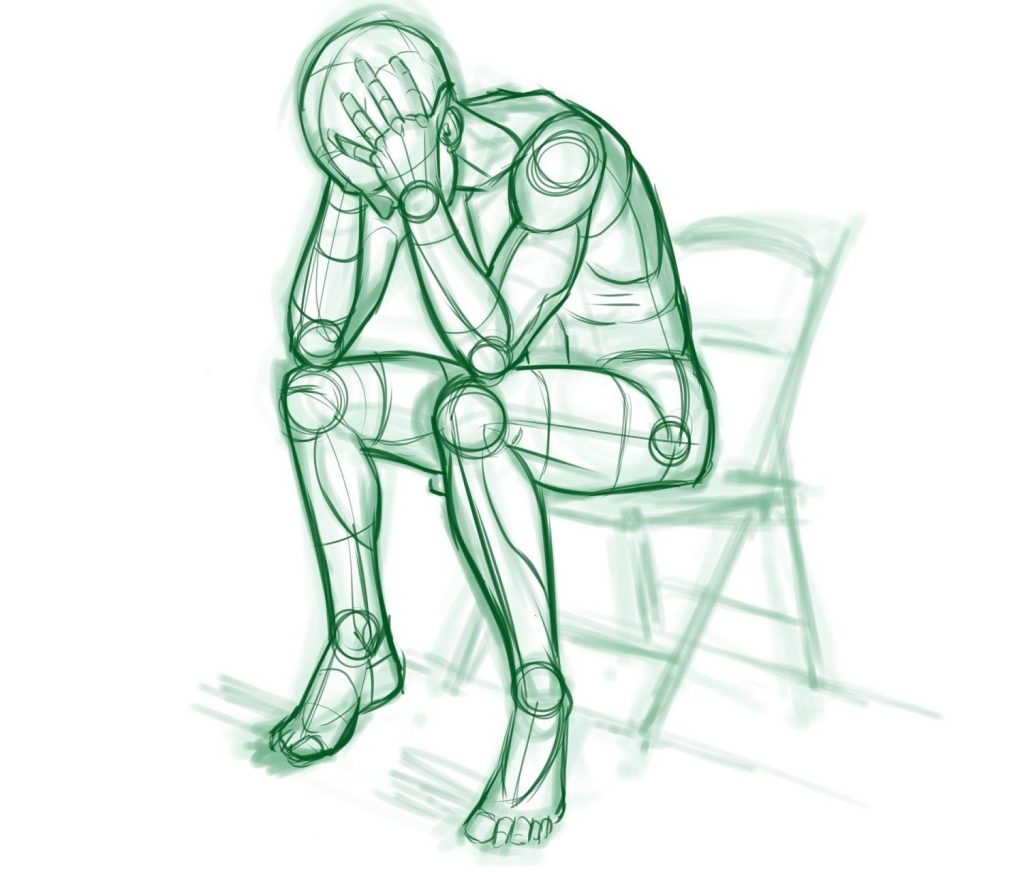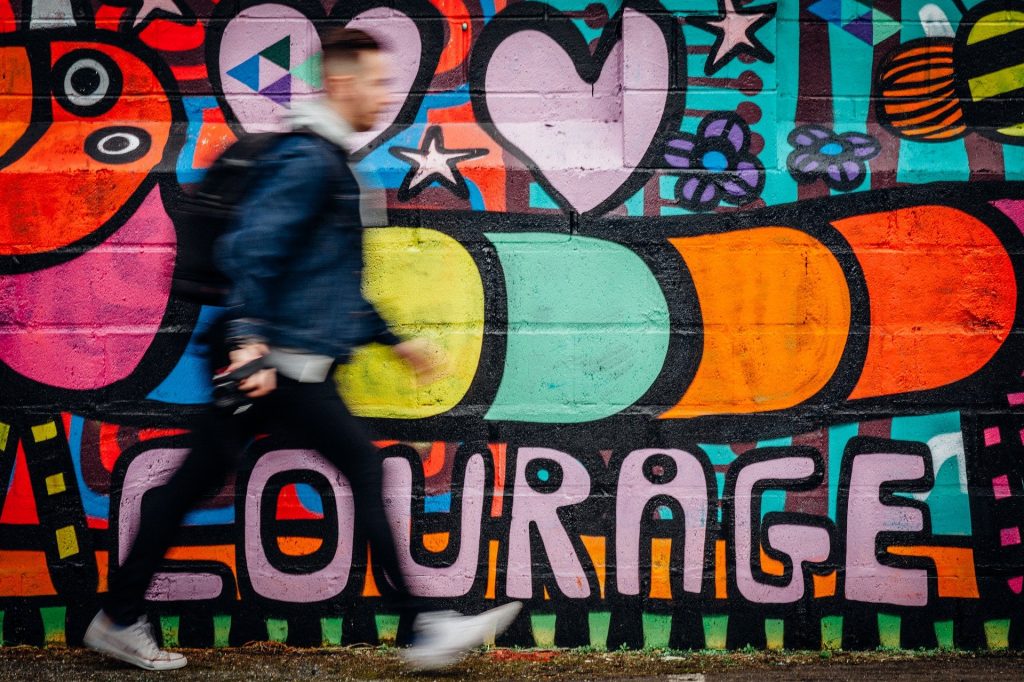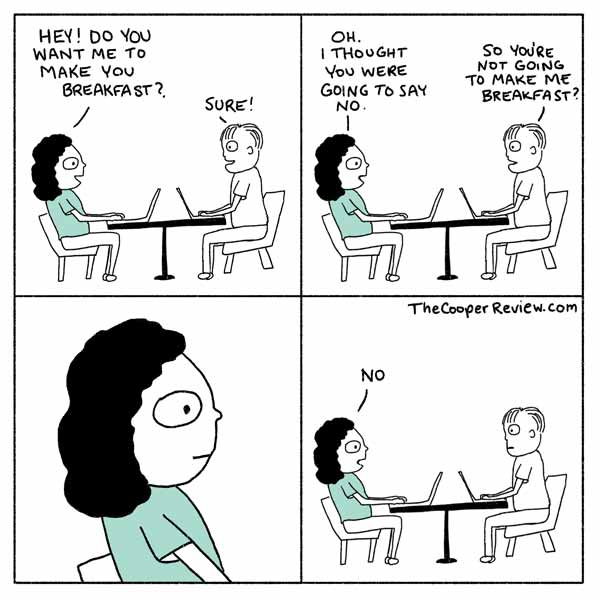Finding more happiness in life might seem like a struggle but practicing these 3 tips might help you experience it faster.

“I have already lost touch with a couple of people I used to be”
Joan Didion
Have you heard of the saying “happiness comes within?”
However, if that´s true then why can it feel difficult to find true happiness that lasts?
One reason is it’s easy to be seduced by the thinking that your own happiness depends mostly on outside circumstances.
However, what if the power to be happy was very much in your hands, and for the most part, in your control? Wouldn’t that be a great thing?
In this article I’m going to offer 3 tips that if practiced could make a massive difference to how happy you are. By the end of the blog, you’ll hopefully have a good idea of how these can help and how to apply them in your own life.
When you practice one or all of these tips with some consistency you will move towards greater happiness. They will help you improve your self-worth which I define as deep respect and appreciation for yourself and by yourself.
If your self-worth is based on mainly on outside factors it will disintegrate when those factors disappear or seem threatened. You’ll always live life for the approval of others. That’s not a good place to be.
The tips are also about you raising your own standards and saying bye-bye to allowing your happiness to held to ransom by others or by you.
They will help you aim higher, demand more of yourself (and of others at times).
The tips are to
- stop comparing yourself to others
- get out of your comfort zone; and
- people-pleasing will get you nowhere.
Stop comparing yourself to others

Negatively judging who you are compared to other people might seem like a natural thing to do. We normally fall into this behaviour from an early age due to family and other influences in society. It then becomes an unthinking habit.
You can judge yourself, you can judge others, you can compare your supposed failures to the success of others and vice-versa, assess the value of your life to someone else´s on the basis of what they have, who they are, where they come from, what they want to do, who they want to be.
Isn´t it exhausting?
Comparing yourself to others may feel natural, but it isn’t harmless. It has an emotional and mental cost for you and for other people when they are the victims of your comparison of them.
It can lead to negative thinking that can quickly become deeply debilitating and draining.
It’s endless. It’s pointless. It’s painful.
There is a big difference with comparison when you are recognizing the positive qualities or achievements of someone and this inspires and motivates you to make changes in your own life for the right reasons.
That kind of comparison sparks inspiration and touches something in your spirit because it reminds you of your own potential and what’s possible in your life. It reminds you who you could be.
This kind of comparison empowers you. It doesn’t drain your energy or leave you feeling small, useless and defeated.
I remember many times in my 20s when I was training in the gym, trying to pack on more muscle and comparing my skinny body to the buffed-up guys training next to me.
I remember feeling deflated, even jealous and thinking I’d never put on more muscle. I often gave up on my workouts halfway through.
I remember thinking I had to have a hot body to attract a boyfriend. If I didn’t, then my value as a person was somehow less.
When I learnt to stop comparing myself to others, I started to appreciate my body and the damn miracle of nature every single body is.
I started to enjoy working out a lot, so that years later, the aesthetic benefit of working out is very much a secondary goal and a happy by-product compared to the competition I have with myself to get fitter and fitter.
How to stop comparing yourself to others
The next time destructive comparison makes you feel downbeat or demotivated, or before you might jump into another reinvention of yourself inspired by the latest social media trend, try some of these actions. They won´t cost anything.
- Pause and step back: take time to stop and think about your real needs, who you are, what’s great about you and some of the successes you’ve had in life. I´m sure there are many wins and they will remind you of something good about yourself. Really go into the feeling of every small win you’ve had. Then you may be in a better emotional state of mind to appreciate yourself and to stop unhelpful comparison.
- Embrace the discomfort: of how you feel so you can start accepting who you are and where you are in this moment. Then you can make constructive, helpful and practical changes that reflect you, not the desire to be like someone else. If you run away from the feeling of discomfort and try to get over it with poor substitutes for healthy self-esteem, it’s hard to start the process of acceptance. Acceptance is necessary for real change to take root.
- Try hard to eliminate all labels and judgments: start making a committed effort to watch the labels and judgments you make each day. Those about yourself and those about the people around you. Don´t accept the lazy labels and assumptions others may have about you too.
- Ask yourself “is it true?” Replace reactive thinking with reflective thinking: words and actions are extremely powerful and they can make and break lives. Try and carve out a few minutes of your day to reflect on where you’ve compared yourself to people because you fell into reacting, instead of challenging your thinking and emotions. When you objectively ask if what you are feeling is true – I mean really, undeniably true – I doubt you’ll find the objective evidence to back it up.
Want to receive new blogs and other tips direct to your inbox?
Sign up for content and my newsletter.
Get out of your comfort zone

We all want mental security. That’s ok and a comfort zone can help at times. There’s a big problem though.
If you stay in your comfort zone for weeks, months or years, you risk being disconnected to yourself.
You miss opportunities in work, love and life.
You miss out on the benefits of being creative and productive.
You miss out on the chance to grow.
You miss out on learning the crucial life skill of resilience.
Staying in your comfort zone gives a false sense of security. This is a massive cost to you.
Missing out on all of this rich, amazing experience of life, is a cause of frustration and a source of fear that drains vitality from your life.
It’s also often the reason why you and others (myself included) may find fault in the efforts of someone else to improve their own life, make a change and seek a new, positive experience.
Staying in your comfort zone and killing your own growth can lead to self-resentment, bitterness and jealously in some people. Anyone who’s never experienced that, well, they must be an angel.
Deep down most people know they can do better and should do better. Squatting in your comfort zone denies you the satisfaction that comes with growth and being better.
How to get out of your comfort zone.
Imagine if you didn’t shoot yourself in the foot by missing out.
You’d feel more connected to who you are and want to be.
There’s a way to step out of your comfort zone without freaking out.
There’s a way to overcome procrastination and move forward. This merits a separate blog but here are some actionable tips to try today:
- Get real: be honest about why you don’t want to step out of your comfort zone instead of finding reasons to justify your inaction. Honesty will help you get to the root of the problem faster.
- Attitude: you don’t have to take on more than you are ready to handle, but you do need to switch your mindset to one of growth rather than failure.
- Compassion: be compassionate to yourself and try not to compare yourself to others critically. It’s truly pointless and wasted energy.
- Baby steps: set realistic expectations. This also means break down what seems big and overwhelming into small steps, even baby steps, but make sure you execute these. Diarise small chunks of time to make progress (literally make sure it is in your diary).
- Work outside your distraction zone: work on eliminating simple things that seem like innocent distractions, but actually are abominable temptations that pull you off track and off focus. Things like unscheduled Netflix sessions, sneak peeks at Tik Tok that suck you in, making yet another cup of tea to have a break, getting lost in the universe of Wikipedia or YouTube, Whatsapp group chats, the snooze button (ok, I admit I can be guilty of this).
When you worry about moving forward remember my mnemonic, C.A.T.S which means:
- C: stop CATASTROPHISING and assume the worst is going to happen. You aren’t psychic.
- A: breathe and take in enough AIR to calm your nerves, root yourself in the present and get your brain and body working for you again.
- T: try and be aware of the TRIGGERS that set you off and make you freeze so you don’t leave your comfort zone.
- S: think of the SOLUTION that will take you towards a little more progress. Ask yourself “what’s the smallest step I could take right now?”
- Have someone or a tool to keep you accountable and committed: for example, even though I’m pretty good at keeping myself accountable, a best friend and I are ‘accountability amigos’ because in 2021 we want to push ourselves to the next level in life, love and career. Find someone positive, constructive and with an inbuilt lie detector. A good coach is also a great way to keep you on your path.
Stepping out of your comfort zone onto a new path is going to take you into uncharted territory. People might give up on you or even ridicule you if you ‘fail.’ It might feel like walking your own path will devour you.
True, it might, in a way. It will devour the old you, forcing you to leave this behind for something different and hopefully something better. Making any real or new change in life can be hard, complicated and messy. You might feel blind as to where you’re going to end up. However, you have to walk the path, take action, to step forward and progress. Otherwise, things stay as they are and staying in your comfort zone leads to stagnation and disconnection.
It’s walking the path that might help you develop and grow. It’s true, as the old saying says “It is your path. No one can walk it for you.” But walking the path will take you away from disconnection to feeling connected. You’ll bring some disruptive energy to the parts of your life that need shaking up. You’ll feel temporary discomfort, but you’ll be moving towards your essence as a person.
It’s hard work. Needs practice and consistency. I promise you will spend less mental energy protecting yourself from changes you know you need to make. The journey might be scary but it will get better.
People-pleasing will get you nowhere

By people-pleasing I mean regularly putting your own needs and desires second to keep other people happy.
The danger of this is people-pleasing chips away at how good you feel about yourself. Being a people pleaser creates doubt, insecurity and frustration that you aren’t being true to yourself and that you are comprising your own integrity too many times.
It’s the friend, parent, lover or colleague who you tiptoe around or bend over backwards for because you worry about their negative reaction if you stand your ground, tell them they are wrong or say “no”. Maybe they’ll explode or drop you and that scares you.
It’s the need to always apologise or say sorry to keep the peace, reduce tense situations that aren’t your fault or win the favour of someone else.
It’s giving up your plans – yet again – to accommodate the wishes of others without a genuine and good reason. Or to be an emotional crutch for others, more often than not, because they won’t take more responsibility for their own life. You people please when you keep quiet about your feelings and needs because you don’t think they matter enough and you don´t value yourself sufficiently.
Being a people pleaser means getting into lots of situations that won’t help you to be happy. It has real potential for much unhappiness and regret in the long term. The kind of unhappiness and regret that eats away at your heart. That’s one reason it is so important not to do it.
You may have read the ‘Top Five Regrets of the Dying’ by Bronnie Ware. It’s a heart-breaking book with an important lesson in it.
Two of the top five regrets of the patients that Bronnie cared for were,
“I wish I’d had the courage to express my feelings” and “I wish I’d had the courage to live a life true to myself, not the life others expected of me.”
You need to give yourself permission to go after your dreams and discover who you are.
How to stop being a people-pleaser
To stop people-pleasing you need to get comfortable discovering your own personal power.
Getting in touch with this is crucial to feeling more confident, and when you feel a little bit more confidence, you can start to enforce boundaries and begin to stop people-pleasing and say ‘no’ to people and situations that you don’t actually want to be in.
Without personal power and the confidence to use this, it is harder to take the actions you need to push you forward in the direction you want.
Finding your personal power and living it can help provide you with the confidence to stay committed to your goals or pursue a better experience of life.
Of course, doubt creeps in or opinions that aren’t constructive will throw negative vibes your way. However, when you are comfortable in your own skin, accepting of the light, the dark and the weird in you, that´s a good start to feeling more secure with yourself.
You can move past those doubts and feel confident enough to ignore the unhelpful views of others.
It’s such a serious matter stepping into who you are.
Personal power when used properly, enables you to do things – to produce, to create, to take a risk, to fight and win against the odds. Like all power it has to come from a source. For it to last and give you a real sense of security, that source has to be your values, your standards and your ethics. It can come from things and external validation, which can disappear in a heartbeat, taking your sense of identity at the same time as well.
To know your personal power, it’s got to be more than a theory. You’ve got to test it, try it, live it and love it.
That might mean annoying a few people or rather a few people getting angry with you when you start saying no. It will mean having to stop terrifying yourself with expecting the worst will happen if you stop people-pleasing.
You don’t need to go over the top and pretend to be a hard, tough person to protect yourself from being a people pleaser. That’s not authentic or good for your mental health. There’s an easier way!
In my view, the best way to stop people-pleasing is to get very, very clear about your values and who you are in life. Then to live it as much as you can. When you try to do that it really becomes a lot easier to say no.
No to people and situations that suck too much time out of your day.
No to falling into experiences that aren’t what you really want and having the courage to walk away.
No to poor behaviour and poor standards from yourself and others.
Though, understanding your values and living them to the point it becomes second nature takes time.
If you are at risk of people-pleasing, but not yet comfortable to deliver a crystal-clear “no,” try these actions:
- Qualified no: say “no I don’t have time and can’t do something now but will take a look/try/consider it/ only when I do have more time.”
- Don’t just accept requests and demands instantly: sometimes you’ll end up doing a ton of work for someone, who hasn’t actually made sufficient effort for themselves. This means valuable time and energy is lost that you could be using for things that matter to you. Get the other person to go away and do more work and thinking on whatever it is they want to pass off onto you. Then when you’ve genuinely got time, only step in then to help.
- Learn how to tackle aggression and bad behaviour: if you pluck up the courage not to people-please, it’s quite possible the other person will try and force you into submission with temper tantrums, sarcasm and passive-aggressive actions. They may throw their toys out of the pram or aggressive behaviour. Ultimately, you’ve got to lean back onto your values and standards and respect for yourself to stay firm, not question your self-worth, or constantly appease for the sake of a quiet life or for fear of losing someone. Depending on the nature and type of relationship you have, you should also be prepared to drop someone who behaves in this way.
I’ve written an article on finding a purpose that relates to life values and happiness which you might find helpful too.
What will you do next?
- If you’d like to make a change and start going after the kind of life you really want, build your self-confidence and put your needs and desires first, get in touch for a complimentary session.
- Take a few seconds to read what some clients have also said about me here.
Check out some other articles I’ve written. I hope they help you.
- Give yourself permission to live the life you want.
- 4 Tips On job hunting and handling career uncertainty.
- Why Having a purpose in life helps you to be happier.
Don´t forget to subscribe to get new content and my newsletter with insights and tips direct to your inbox!
